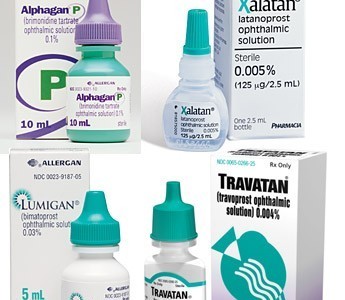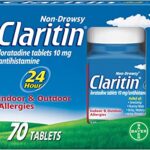Can You Use Expired Eye Drops?

Eye drops or eyedrops are saline-containing drops used as an ocular route to administer. Depending on the condition being treated, they may contain steroids, antihistamines, sympathomimetics, beta receptor blockers, parasympathomimetics, parasympatholytics, prostaglandins, nonsteroidal anti-inflammatory drugs (NSAIDs), antibiotics, antifungals, or topical anesthetics.
Eye drops sometimes do not have medications in them and are only lubricating and tear-replacing solutions. Eye drops have less of a risk of side effects than do oral medicines, and such risk can be minimized by occluding the lacrimal punctum (i.e. pressing on the inner corner of the eye) for a short while after instilling drops. Eye drops are also used for stopping itching and redness of the eyes.
Does Eye drops Expire?
Yes, Eye drops can expire. An expiration date is a date after which a consumable product such as food or medicine should not be used because it may be spoiled, damaged, or ineffective. Expiration dates are especially important for medications because they offer the only indication about whether the product is still safe to use
In the late 1970s, the United States Food and Drug Administration (FDA) mandated that all prescription and over-the-counter (OTC) medical products contain an expiration date. Expiration dates for medicines are often marked “EXP” and are printed on the label or stamped onto the medicine bottle or box.
Can I apply expired Eye drops?
No, expired Eye drops is less effective or risky due to a change in chemical composition or a decrease in strength. The expiration date is the final day that the manufacturer guarantees the full potency and safety of a medication. Drug expiration dates exist on most medication labels, including prescription, over-the-counter (OTC) and dietary (herbal) supplements. U.S. pharmaceutical manufacturers are required by law to place expiration dates on prescription products prior to marketing.
Certain expired medications are at risk of bacterial growth and sub-potent antibiotic drop can fail to treat infections, leading to more serious illnesses and antibiotic resistance. Once the expiration date has passed there is no guarantee that the medicine will be safe and effective. If your Eye drops has expired, do not use it. Even though some controversial studies indicate that some drugs can be used after expiry dates, it is better to err on the side of caution in order not to complicate your health condition or trigger unwanted adverse effects.
What to do with expired Eye drops?
The CDC reports that 50,000 young children end up in emergency rooms each year because they got into medicines while an adult wasn’t looking. Expired medicines are also not just a risk to the person they were prescribed for and can injure children and pets if taken by mistake. For all these reasons, proper disposal of unneeded medicines is essential.
Keep this medication in the container it came in, tightly closed, and out of reach of children. Store it at room temperature and away from excess light, heat and moisture (not in the bathroom).
It is important to keep all medication out of sight and reach of children as many containers (such as weekly pill minders and those for eye drops, creams, patches, and inhalers) are not child-resistant and young children can open them easily. To protect young children from poisoning, always lock safety caps and immediately place the medication in a safe location – one that is up and away and out of their sight and reach. http://www.upandaway.org
Unneeded medications should be disposed of in special ways to ensure that pets, children, and other people cannot consume them. However, you should not flush this medication down the toilet. Instead, the best way to dispose of your medication is through a medicine take-back program. Talk to your pharmacist or contact your local garbage/recycling department to learn about take-back programs in your community. See the FDA’s Safe Disposal of Medicines website (http://goo.gl/c4Rm4p) for more information if you do not have access to a take-back program.
A place for everything
Proper storage is one way to help make sure your medicines will remain safe and effective up to their expiration date. Be sure to read the label to see if there are specific storage instructions for your medicine. Certain medicines need to be stored in the refrigerator and others cannot be exposed to high temperatures. Improper storage – such as a damp bathroom cabinet – can contribute to decreased effectiveness in medicines that have not reached their posted expiration date. For most medicines, to help ensure the proper shelf life of your medicine, it is better to store medicine in a cool, dry place such as a dresser drawer, storage box, closet shelf, or kitchen cabinet.
When storing medicine in a kitchen cabinet, make sure that it is away from hot appliances and the sink due to changing temperatures and humidity which can affect the medicine. When storing medicine in a high traffic area like a kitchen, care should be taken to prevent access by children at risk of accidental poisoning or others who may be tempted to take for abuse/misuse.
Remember to store medicines properly and don’t use expired medicines, it’s not worth the risk!
You may find additional useful information on: Why are Glaucoma Drops Given at Night?





